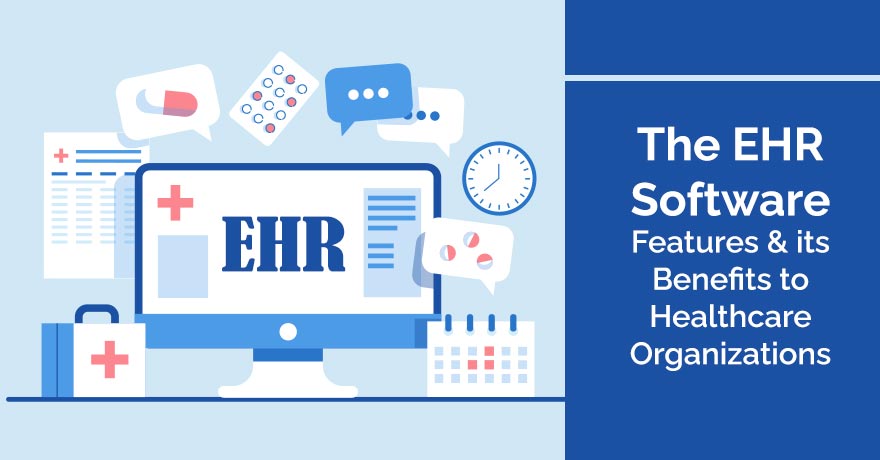Benefits of EHR Systems
In this article, we will explore the numerous benefits of Electronic Health Record (EHR) systems. EHR systems have revolutionized the healthcare industry by digitizing patient records and streamlining various processes. With their advanced features and functionalities, EHR systems offer several advantages to healthcare providers, patients, and the overall healthcare ecosystem.
Improved Efficiency and Accessibility
EHR systems enhance efficiency in healthcare organizations by eliminating the need for manual paperwork and reducing administrative tasks. With EHR systems, healthcare providers can easily access patient records, medical history, lab results, and other crucial information with just a few clicks. This accessibility saves time, allowing healthcare professionals to focus more on patient care and less on administrative duties.
Enhanced Patient Care and Safety
EHR systems play a vital role in improving patient care and safety. By providing quick access to accurate and up-to-date patient information, healthcare providers can make well-informed decisions regarding diagnosis, treatment plans, and medications. EHR systems also facilitate seamless communication and collaboration among healthcare teams, ensuring that all providers involved in a patient’s care are well-informed and can provide coordinated and effective treatment.
Streamlined Workflows and Cost Savings
Implementing EHR systems can lead to significant cost savings for healthcare organizations. By reducing the need for paper-based records, storage space, and manual data entry, EHR systems help minimize administrative expenses. Furthermore, streamlined workflows and automated processes within EHR systems contribute to improved operational efficiency, reducing the overall cost of healthcare delivery.
Enhanced Data Accuracy and Security
EHR systems offer robust data accuracy and security measures. With built-in validation checks and standardized data entry, the likelihood of errors and inconsistencies is greatly reduced. Additionally, EHR systems employ advanced security protocols to protect patient information from unauthorized access or breaches. This ensures patient confidentiality and compliance with privacy regulations.
Improved Decision-Making and Analytics
EHR systems provide healthcare providers with valuable insights and analytics that can aid in decision-making. By analyzing large volumes of patient data, EHR systems can identify patterns, trends, and potential risks, enabling healthcare professionals to make informed decisions about patient care, resource allocation, and population health management. These data-driven insights contribute to improved clinical outcomes and overall healthcare quality.
Interoperability and Continuity of Care
EHR systems promote interoperability, allowing seamless sharing of patient information across different healthcare settings and providers. This facilitates continuity of care, as healthcare professionals can access comprehensive patient records regardless of location or healthcare system. Interoperability also reduces duplicate tests, improves care coordination, and enhances patient satisfaction.

EHR systems offer a multitude of benefits to healthcare providers, patients, and the healthcare industry as a whole. By improving efficiency, enhancing patient care and safety, streamlining workflows, ensuring data accuracy and security, enabling data-driven decision-making, and promoting interoperability, EHR systems have transformed the way healthcare is delivered. Embracing EHR systems can lead to improved healthcare outcomes, cost savings, and a more patient-centric healthcare experience.
Frequently Asked Questions about the Benefits of EHR Systems
1. What are the main advantages of using EHR systems?
EHR systems offer numerous benefits such as improved patient care coordination, increased efficiency, reduced medical errors, and enhanced data security.
2. How do EHR systems enhance patient care coordination?
EHR systems enable healthcare providers to easily access and share patient information, ensuring seamless coordination among different healthcare professionals involved in a patient’s care.
3. Can EHR systems help in reducing medical errors?
Yes, EHR systems have built-in features like clinical decision support systems and automated alerts that help healthcare providers reduce medication errors, avoid drug interactions, and improve overall patient safety.
4. Do EHR systems improve efficiency in healthcare settings?
Absolutely! EHR systems streamline administrative tasks, automate documentation processes, and facilitate faster information retrieval, ultimately saving time for healthcare providers and improving overall efficiency.
5. Are EHR systems cost-effective?
While the initial implementation cost of EHR systems can be significant, in the long run, they can lead to cost savings by reducing paperwork, minimizing duplicate tests, and improving overall healthcare outcomes.
6. Can EHR systems improve patient engagement?
Yes, EHR systems often come with patient portals that allow patients to access their health records, communicate with healthcare providers, schedule appointments, and actively participate in their care.
7. How do EHR systems enhance data security?
EHR systems offer advanced security measures like encryption, access controls, and regular data backups, ensuring that patient information remains protected from unauthorized access or loss.
8. Do EHR systems improve decision-making for healthcare providers?
Yes, EHR systems provide healthcare providers with comprehensive patient information, including medical history, lab results, and medication records, enabling them to make more informed and accurate decisions about patient care.
9. Can EHR systems help in research and population health management?
Absolutely! EHR systems can aggregate and analyze large amounts of patient data, allowing researchers and public health officials to identify trends, assess population health, and make evidence-based decisions.
10. Are EHR systems interoperable with other healthcare systems?
Interoperability is a key feature of modern EHR systems, allowing them to exchange patient information with other healthcare systems, labs, pharmacies, and healthcare providers, ensuring seamless continuity of care.




